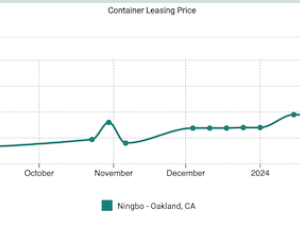Aluminum Giants Stop Short of Backing Trump Import Crackdown
By: Joe Deaux | Jun 22 2017 at 03:58 PM | Maritime
As the calls for restrictions on cheap Chinese imports reach a fever pitch in Washington, some of the biggest North American aluminum producers are advocating a softer touch.
Alcoa Corp. urged the U.S. to directly engage with China to ensure overproduction no longer spills out to the rest of the world. Rio Tinto Group also argued for a negotiated solution. Arconic Inc., one of the biggest American producers of aluminum automotive and jet parts, warned that action on raw metal imports may disrupt the supply chain.
Representatives of the three companies, along with several others pushing for tariffs on what they say are unfairly priced Chinese shipments, spoke Thursday at a hearing in Washington as the Department of Commerce investigates whether imports of the metal threaten national security. It’s unclear what an affirmative finding could mean for American allies, particularly Canada, which supplies about 42 percent of the aluminum consumed there.
“We shouldn’t try to distort the market back into compliance,” Matt Aboud, president of Hydro Aluminum Metals USA, said at the hearing.
Century Aluminum Co. Chief Executive Officer Mike Bless called for “significant” tariffs on non-Canadian aluminum. Bless last year called on the U.S. to file a World Trade Organization complaint alleging China was illegally subsidizing its aluminum industry, which was causing a global glut of the metal. The Obama administration filed the complaint just before the end of its second term.
In April, Commerce Secretary Wilbur Ross said that in the event of a war, domestic manufacturers might be unable to meet the Pentagon’s needs.
At Thursday’s hearing, Rio Tinto Aluminum CEO Alf Barrios highlighted a long history of U.S.-Canada defense integration, with a previous 232 investigation concluding the two-countries’ alignment. The business ships 75 percent of its Canadian production to the U.S.
Barrios said the Chinese government’s pledge to reduce overcapacity offers “some hope.”
Li Xie, an official at China’s Ministry of Commerce, said the country has taken proactive steps to eliminate excess domestic capacity, and said that aluminum required for U.S. national defense is less than 2 percent of total domestic consumption. Xie said unilateral trade restrictions aren’t conducive to solving the problems of the global industry.
The steel industry is awaiting measures from Commerce this month as Ross has said the U.S. is the victim of overcapacity. Last week, industry representatives briefed on discussions said the White House was divided over how hard to come down on cheap steel imports.









